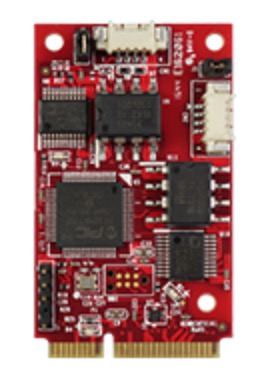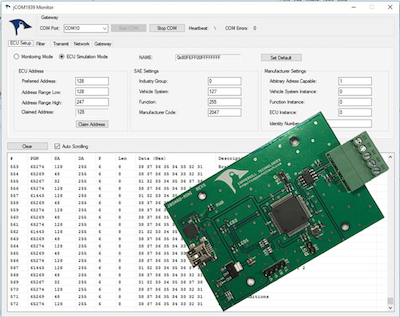Blog
Recent Posts
USB To Dual Isolated CAN Bus And SAE J1939 Module With SocketCAN Driver Support
Posted by on
Innodisk, a company based in Taiwan, introduced their EMUC-B202 module, designed for CAN Bus applications and Fleet Management tasks using SAE J1939.
The product can be installed via mPCIe or USB pin header. It features ESD protection, and supports a temperature range from -40 °C to +85 °C plus galvanic isolation. A SocketCAN software driver is available.
Product Features
- CANbus 2.0B backward-compatible with 2.0A
- Supported baud rates: 100/125/250/500(default)/800/1000K
- Supports CAN message acceptance filter
- Keeps configuration after hardware reboot
- Up to 6000 CAN messages per second (received data)
- Supports Listen-only mode
- Additional driver to support Linux SocketCAN
- Supports SAE J1939 high layer protocol (Optional)
- Termination resistor enabled/disabled by jumper
- Complies with EN61000-4-5 2.5kV Surge protection
- Complies with IEC 60950-1:2005 + A1: 2009 + A2:2013 2.5kV HiPOT protection
- Complies with EN61000-4-2 (ESD) Air-15kV, Contact-8kV
- Supports 3rd mounting hole and USB Pin header for outof-minicard installation
- 30μ" golden finger, 3-year warranty
- Supports -40 to +85 degrees
- Industrial design, manufactured at Innodisk Taiwan
SAE J1939 ECU Simulator Board With USB Port
The jCOM.J1939.USB gateway board is a high-performance, low-latency vehicle network adapter for SAE J1939 applications. It allows any host device with a USB COM port to monitor SAE J1939 data traffic and communicate with the SAE J1939 vehicle network.
The board supports the full SAE J1939 protocol according to J1939/81 Network Management (Address Claiming) and J1939/21 Transport Protocol (TP). It is also supported by an extensive programming interface for Windows and Linux/Ubuntu applications, including full C/C++/C# source code for short time-to-market developments.
With all its features, the jCOM.J1939.USB allows the simulation of an SAE J1939 ECU (Electronic Control Unit) using embedded solutions such as the Raspberry Pi, BeagleBone, Arduino, Teensy, and others but also PCs running Windows or Linux (incl. Ubuntu, Fedora, etc.).
 Loading... Please wait...
Loading... Please wait...


